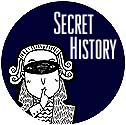
Comment
on this story |
 |

A memory of Tom Rutledge
by Jack Neely
Late last Wednesday night, I went to the Corner Lounge on North Central. Because the place was quiet on the street side, I wondered if my information was accurate. But I followed the signs and walked in the back and found the place crowded as a speakeasy. Several local heroes were on stage. It was kind of a stealth concert, word of mouth, a songwriters' night featuring R.B. Morris, Todd Steed, Mic Harrison, and Scott Miller, playing short, rotating sets. Each of them have sold out several other nightclubs in town, but they chose to play together to this comfortably crowded room, and some riffed off the storied Corner in makeshift lyrics. The audience was a combination of young nightclubbers, a few North Central geezers, and a bunch of us survivors of Fort Sanders shaggy days. I couldn't stay for long. Every eddy in the crowd disclosed someone else I hadn't seen in months or years. This old prewar beer joint was a great place to see a show, everyone agreed.
Close to midnight, as I was thinking maybe it was time to go, Tom Rutledge showed up at the crowded bar. He was his hearty, grinning self, our Falstaff. "What a bunch of losers," he said. "And now that I'm here, it's complete."
He was a kidder. About himself, at least. Sometime the next day, apparently after he'd been cleaning his gutters in South Knoxville, Tom Rutledge died, just like that.
I don't know whether he knew that he had become an important man in the city. Lately known as the man in charge of the annual beer festival known as the East Tennessee Brewers' Jam, he threw the last one at World's Fair Park not three weeks ago. Proceeds went to Tom's favorite charity, Community Shares. After throwing it for a couple of years in downtown parking lots, Tom was especially happy to have the festival return to its home location where it had been years before. To celebrate the return, he scheduled a day of live retro music. It was a brilliant success on that sunny day, crowds of people browsing a grassy field, like a medieval fair. It drew more than 2,000 people, as Tom expected it would, many of them from other states. It was, as it always is, one of the best two or three public events held in Knoxville.
He spent much of his time there walking around the grounds alone, greeting people. He asked them each the same question. "Are you having a good time?" He didn't ask in the perfunctory manner of a host. He asked as if it was an important question and as if he needed to know the answer. If there was any sort of a problem, he wanted to fix it for next year.
Tom was originally from Maryland, but came to school at UT, and like many unsuspecting students, stayed. I'd been around Tom since the early '80s, when he was involved with college radio, one of the first program directors at WUTK, when it was the only new-music station in town that wasn't playing pap. We hadn't always been good friends. Tom was endowed with an unblinking, almost childlike frankness. If he thought you were corny or stupid or useless, he'd tell you so, just like that. Then he'd watch you as you responded to this news. He loved an argument, and nearly every conversation included some kind of challenge, like a serve in a tennis game. He didn't take things personally, and didn't expect you to, either. There was a time when I tried to avoid him. Maybe he mellowed, or maybe I became more appreciative of unusual personalities. Late, but not too late, I concluded that Tom was a good guy.
In recent years it was a pleasure to run into Tom, and I often did unexpectedly. He was still an impish sort of guy in middle age, our Falstaff, always up to something. This past May, he showed up at the Agee Toast, a small annual literary observation at the Checker Flag, a bar a few miles out Clinton Highway, which happens to be at the site of a fatal car wreck in 1916 that's described in some novel. Tom mentioned that the day we were commemorating, the day of the fatal crash, was his birthday.
I asked him how old he was, not expecting an innocent question to cause me any trouble. Of course, I'd forgotten who I was talking to. Tom told me he'd bet me a beer that I couldn't guess his age within five years. Since that gave me a full decade span, I took him up on it.
It dawned on me quickly that I was a sucker. Tom was a puzzle. A rotund fellow without much gray in his schoolboy haircut, he could have passed for 30. But I knew he couldn't be much younger than 40, because I knew him from Fort Sanders days, 20 years ago. He looked like a big kid, but dressed conservatively, usually in slacks and a button-down shirt.
"Forty-two," I said. I was careful to cover myself if he turned out to be just 37 or 38.
"I'd like an Ice House," he said. They don't sell homebrew at the Checker Flag. "I'm 50."
It's still too young.
Tom was not a funeral-home sort of guy. For the record, I'm not, either. But for those who are interested, there's a memorial service this Sunday, the 9th, from 1 to 5 p.m. at Tom's favorite saloon, the Preservation Pub on Market Square. Bring a memory.

November 6, 2003 * Vol. 13, No. 45
© 2003 Metro Pulse
|





